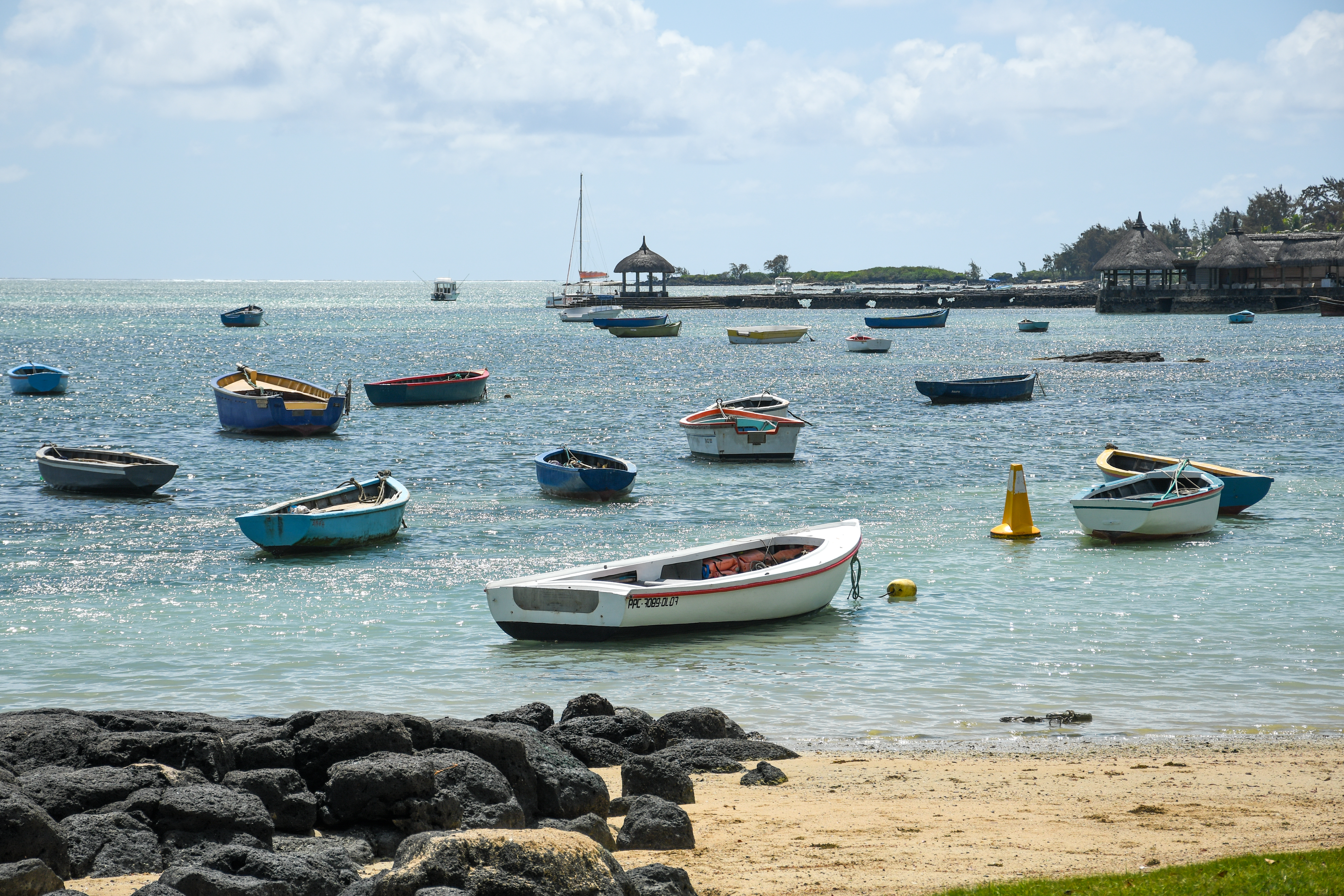The UNDP supports capacity building for the management of the carrying capacity of the lagoon.
July 12, 2022

Managing the number of boats that can be accommodated within a specific area of the lagoon aims at limiting negative impacts on the marine biodiversity.
On Wednesday 05 July, the UNDP facilitated a capacity building workshop on the carrying capacity study of the lagoon around Mauritius and the SEMPA in Rodrigues. The event was attended by Ms. Sharmila Narayanen, Senior Tourism Planning Executive, Ministry of Tourism; Ms. Tanzila Sankoh, Head of Environment, UNDP; and representatives from various ministries, parastatal organisations, CSOs, and NGOs. This workshop aimed at improving the capacity of officers and technical staff responsible for the management of the carrying capacity of the lagoon. The goal was to optimize the environmental management of the activities developed in the lagoon and provide adequate tools to minimize social and environmental impacts.
This workshop was organised under the GEF-funded ‘Mainstreaming Biodiversity’ project, which seeks to integrate the conservation and sustainable use of the ecosystem into the coastal zone management and operations of the tourism and physical development sectors in Mauritius. This initiative focuses on ways of managing the carrying capacity of the lagoon, which refers to the number of boats that can be accommodated within a specific area without negative impacts on the marine biodiversity. In this context, a tool has been developed to monitor the maritime traffic inside the lagoon, to prevent it from being overloaded due to pressures from touristic coastal activities. The aim of the workshop was to deliver capacity building exercises and obtain feedback from the technical staff who will be using this platform on a day-to-day basis.
During the welcome address, Ms. Sharmila Narayanen, Senior Tourism Planning Executive, Ministry of Tourism, explained that tourism and environmental preservation are often considered as conflicting activities, especially in lagoons where coastal activities often impact the environment. According to her, “this study will enable the implementation of the necessary management system and safeguards to prevent irreversible damage to marine ecosystems.”
According to Ms. Tanzila Sankoh, Head of Environment, a.i., UNDP, this “project aims at protecting the natural assets of the Republic of Mauritius from adverse impacts of touristic activities carried out in the lagoon.” This initiative is part of the UNDP’s efforts to support the Government of Mauritius to realize its national priorities in climate action and environmental protection.
"This project aims at protecting the natural assets of the Republic of Mauritius from adverse impacts of touristic activities carried out in the lagoon.”
The workshop included presentations on the Carrying Capacity Study of Lagoon and Management Framework by Ms. Patricia Casal and Mr. Vassen Kauppaymuthoo. The first presentation focused on the approach for the carrying capacity, the method of analysis and results, proposed zoning, and the management framework. The consultants then discussed the Strategic Environmental Assessment (SEA) results and monitoring framework, which included the scoping process, impact evaluation and assessment, key impacts identified, and the monitoring framework.
The workshop also comprised of two group working sessions where participants had the opportunity to engage in discussion. The first session focused on the practical approach to the implementation of the management framework, and the second was dedicated to the environmental and social monitoring plan for the SEA. Both sessions involved practical case study exercises to enable stakeholders to better understand and familiarise themselves with the monitoring tool.
Following this workshop, the stakeholders will use the tool developed and provide their views and comments so that the consultants can proceed with the validation process by the Ministry of Tourism. This tool, as the first initiative of an SEA to protect lagoons, will enable the sustainable use of the marine resources which are of prime importance for Mauritius.

 Locations
Locations